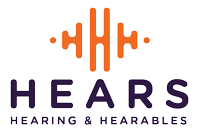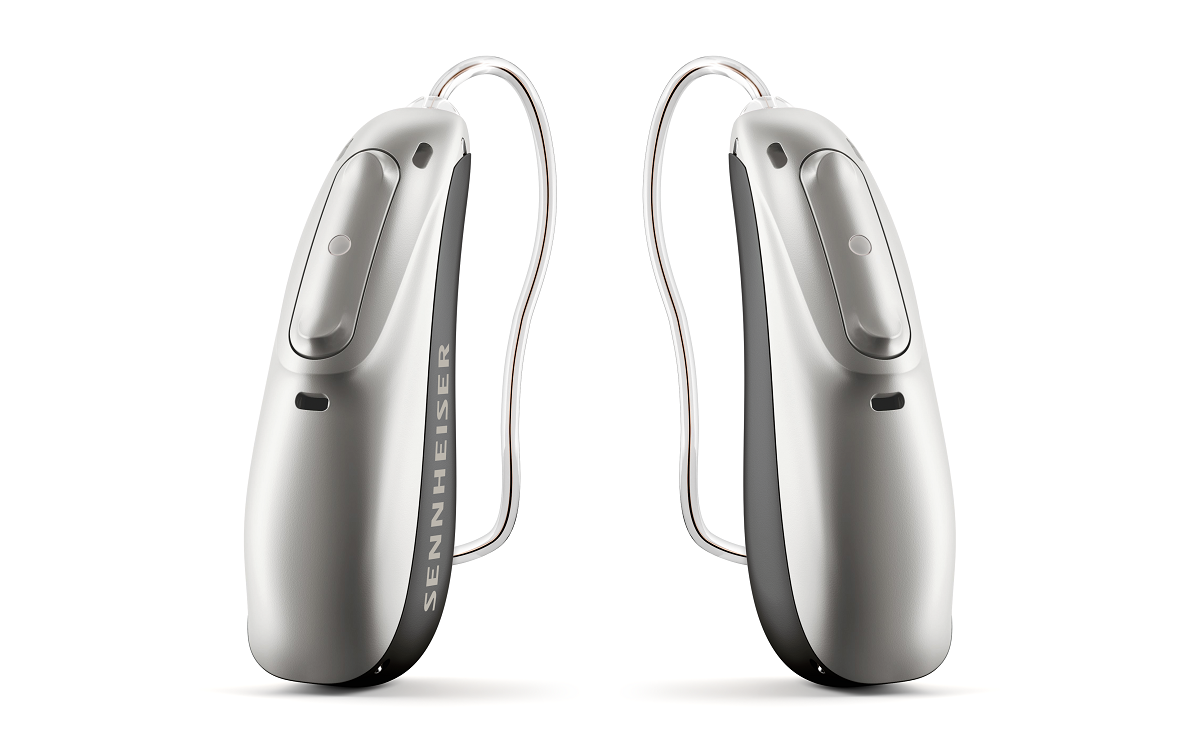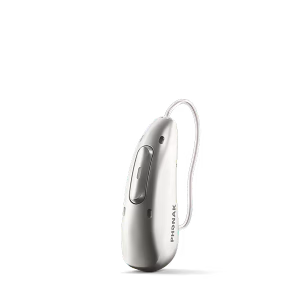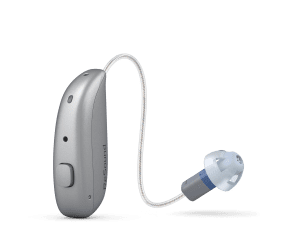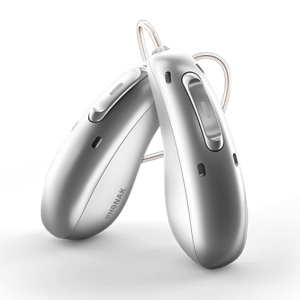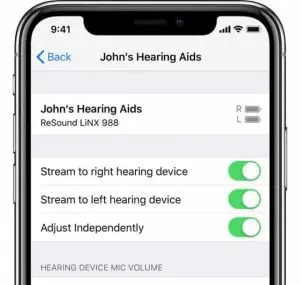Costco has long been a dominant force in the hearing aid market, offering high-quality devices from top manufacturers at competitive prices. Recently, they introduced the Sennheiser Sonite R hearing aid in select locations. This device is the latest addition to their lineup and carries the Sennheiser name—recognized globally for its audio expertise. However, beneath the branding lies an important story about the hearing aid industry’s rebranding practices, which can sometimes lead to confusion for consumers.
What is the Sennheiser Sonite R?
The Sennheiser Sonite R is a rechargeable receiver-in-canal (RIC) hearing aid, developed by Sonova, the parent company behind well-known hearing aid brands like Phonak, Unitron, and Hansaton. Despite the new branding, the Sonite R closely resembles earlier Phonak hearing aid models rather than the latest advancements, like the Phonak Infinio Sphere, from Sonova’s flagship products.
Key features of the Sennheiser Sonite R include:
- Rechargeability: A full charge in just three hours offers all-day battery life.
- Bluetooth® Connectivity: Stream audio seamlessly from your smartphone or other devices.
- Advanced Speech Processing: Enhances speech clarity, even in noisy environments, using machine learning and adaptive technology.
- Durability: Rated IP68 for resistance to dust and water.
- Compact Design: Includes a sleek charger with a magnetic retention system for easy use.
- App Integration: The Easy Line Remote app allows users to adjust settings, track activity, and access remote support.
With a price point of $1,600 per pair, the Sennheiser Sonite R is an attractive option for individuals seeking affordable, high-quality hearing aids dispensed by licensed hearing care professionals.
Rebranding in the Hearing Aid Industry
The Sennheiser Sonite R is not unique in its rebranding. Costco frequently works with major hearing aid manufacturers to offer devices under more consumer-recognizable names. For example:
- Jabra Enhance Pro hearing aids are nearly identical to GN ReSound devices.
- Philips HearLink aids are manufactured by Demant, the parent company of Oticon.
- Previously, the Kirkland Signature 10 was based on Phonak’s Paradise platform.
This practice enables Costco to market hearing aids under trusted consumer electronics brands like Sennheiser and Jabra, which may resonate more with general consumers. However, the lack of transparency can leave users unaware that these devices are rebranded versions of existing models.
Potential Challenges for Consumers
Rebranding may complicate the process of purchasing compatible accessories or receiving aftercare. For example, someone buying a Jabra-branded device may not realize it shares technology with ReSound aids, leading to confusion when seeking compatible chargers, domes, or app support.
Additionally, the similarity between rebranded devices and their original counterparts may limit a consumer’s understanding of the underlying technology. Without clear communication from retailers, buyers might not realize they are purchasing slightly older technology under a new name.
Transparency and Consumer Awareness
Understanding the relationship between Costco and major hearing aid manufacturers is essential for informed decision-making. By recognizing that many of Costco’s hearing aids, like the Sennheiser hearing aid, are rebranded versions of top-tier products, consumers can make better choices regarding compatibility, accessories, and overall value.
Commodifying the Hearing Aid Market
While Costco offers undeniable cost savings, its approach to hearing care may not be the best fit for everyone. By focusing on high-volume sales and streamlined fitting processes, Costco is commodifying the hearing aid market, often favoring a “one size fits all” solution over a more patient-centered approach.
Key Considerations:
- Limited Options for Personalization: Costco’s business model prioritizes efficiency, which may limit opportunities for patients to try different devices and select the one that best fits their unique hearing needs and lifestyle.
- Hearing Aid Dispensers vs. Audiologists: Costco hearing centers typically employ hearing aid dispensers rather than audiologists. While dispensers are qualified to fit hearing aids, individuals with severe or unusual hearing loss patterns may benefit more from the expertise of an audiologist.
- Minimal Follow-Up Services: Costco’s focus on quick fittings can result in fewer follow-up appointments and less personalized support. This may not be ideal for patients who require ongoing adjustments or more extensive counseling.
For those with mild to moderate hearing loss, Costco’s services can be a cost-effective solution. However, individuals with more complex needs should carefully consider whether this approach aligns with their hearing care goals.
Personalized Hearing Care with Hears Hearing & Hearables
At Hears Hearing & Hearables, we understand that hearing is personal. That’s why we take a patient-first approach, meeting you wherever you are in your hearing journey. Whether you’re:
- Starting your search for a hearing aid,
- Looking to upgrade your current device,
- Comparing prices, or
- Needing support for an existing hearing aid,
we’re here to help. Our goal is to provide affordable, high-quality hearing care solutions tailored to your needs—without sacrificing transparency or personalized service.
If you’re exploring hearing aid options, let us guide you toward the best choice for your lifestyle and hearing needs. Contact us today to learn more about how we can support your journey to better hearing.
